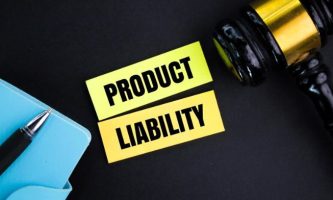When You Need A Lawyer: The Benefits Of Hiring A Nursing Board Attorney

You have put a great deal of effort into developing your nursing career; therefore, protecting your license to practice is crucial. It can be difficult and frustrating to navigate the complicated world of nursing licensure and deal with legal matters that could put your license in jeopardy.
This is where a nursing board attorney may help, providing several advantages to nurses who are having issues with their licenses. Hence, let’s not wait anymore and jump straight into the topic.
Expertise In Nursing Licensure Laws
The laws and rules about nursing licenses are the areas of expertise for attorneys on nursing boards. Their legal practice has been devoted to comprehending the complexities of nursing practice and licensing regulations. Their proficiency enables them to offer you accurate advice customized to your circumstances. They make sure you have the most recent information because they are knowledgeable about the guidelines that nursing boards have established.
Particularized Legal Approaches
Since each nursing license situation is different, there is no such thing as a one-size-fits-all strategy. Nursing board lawyers examine the specifics of your case, pinpoint the most important points, and create specialized legal plans to keep your nursing license safe. Their individualized strategy considers your unique situation to improve your chances of a successful outcome. They adjust their strategy accordingly, realizing that no two circumstances are the same.
Defense Of Your Rights
Your rights are safeguarded during the legal process by a nursing board attorney acting as your advocate. They will defend your rights and fight for an equitable and just outcome by standing by your side. In court, your lawyer will speak for you, ensuring that due process is followed and that you are treated properly.
Detailed Research And Recordkeeping
Attorneys on the nursing board carry out in-depth investigations to collect data, speak with witnesses, and assemble all required paperwork for your case. Building a solid defense and making a persuasive case on your behalf require this painstaking attention to detail. They go above and above to gather information that can bolster your claim.
Representation At Nursing Board Hearings
If your case progresses to a nursing board hearing, your attorney will represent you professionally and persuasively. They have experience in these proceedings and can effectively communicate your side of the story to the board. They are well-versed in the nuances of presenting cases before nursing boards and will use their knowledge to your advantage.
Mediation And Negotiation Skills
In some cases, it may be possible to resolve licensure issues through mediation or negotiation. Nursing board attorneys are skilled in these processes and can work diligently to reach an agreement that is favorable to you. Their negotiation skills can potentially avoid a lengthy legal battle, saving you time, money, and stress.
Reduced Stress And Anxiety
Facing licensure challenges can be emotionally draining. Having a nursing board attorney to handle the legal aspects of your case can significantly reduce the stress and anxiety associated with the process. You can have peace of mind knowing that a knowledgeable professional is managing your legal matters, allowing you to focus on your nursing practice and personal well-being.
Preserving Your Nursing Profession
A nursing board attorney’s main objective is to assist you in keeping your nursing license and safeguarding your nursing career. You stand a higher chance of settling conflicts and continuing in your profession with their assistance and advocacy. They will put forth endless effort to protect your career since they recognize how important it is to you.
Network And Resource Access
Expert witnesses and other legal experts are among the many resources that nursing board attorneys frequently have access to and can be of great assistance to you in your case. Their ties may be very helpful in constructing a robust defense. They can use their professional and resource network to bolster your case and offer knowledgeable opinions as needed.
Read Also: Enforcing Prenuptial Agreements: The Legal Process And Challenges
Timely Resolution
Legal matters involving nursing licensure can be time-consuming. A nursing board attorney can expedite the resolution process by navigating the legal system efficiently and ensuring that they meet deadlines. They understand the importance of a timely resolution. Thus allowing you to move past the challenges and uncertainties as quickly as possible.
In conclusion, hiring a nursing board attorney is a proactive and prudent step when facing challenges that threaten your nursing license. Their expertise, advocacy, and commitment to protecting your rights can make a significant difference in the outcome of your case.
By entrusting your legal matters to a knowledgeable professional, you can safeguard your nursing career and focus on what you do best. And that’s providing quality care to your patients. A nursing board attorney is your dedicated ally in preserving your nursing license and ensuring the continued success of your career.
Additional:













